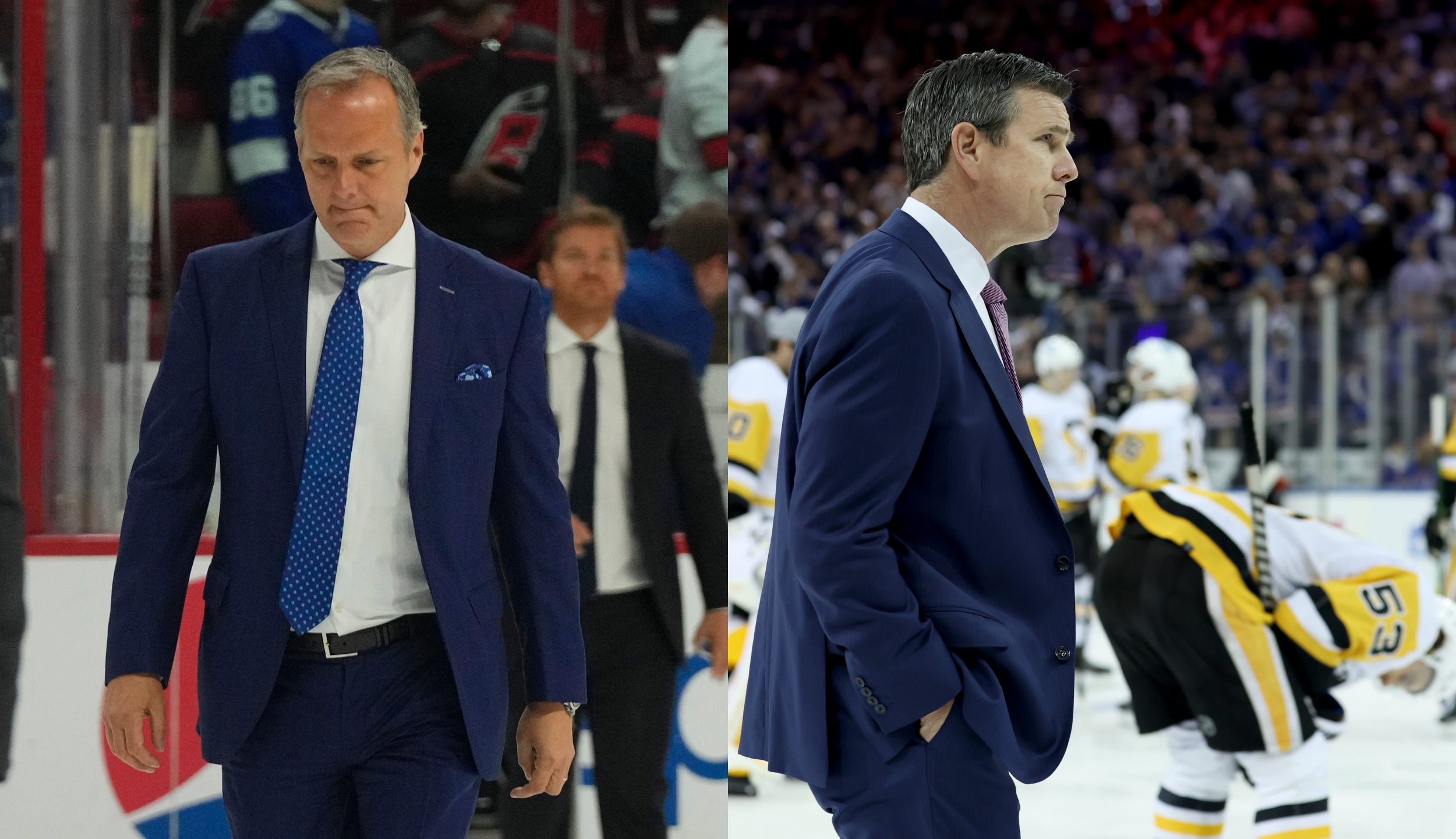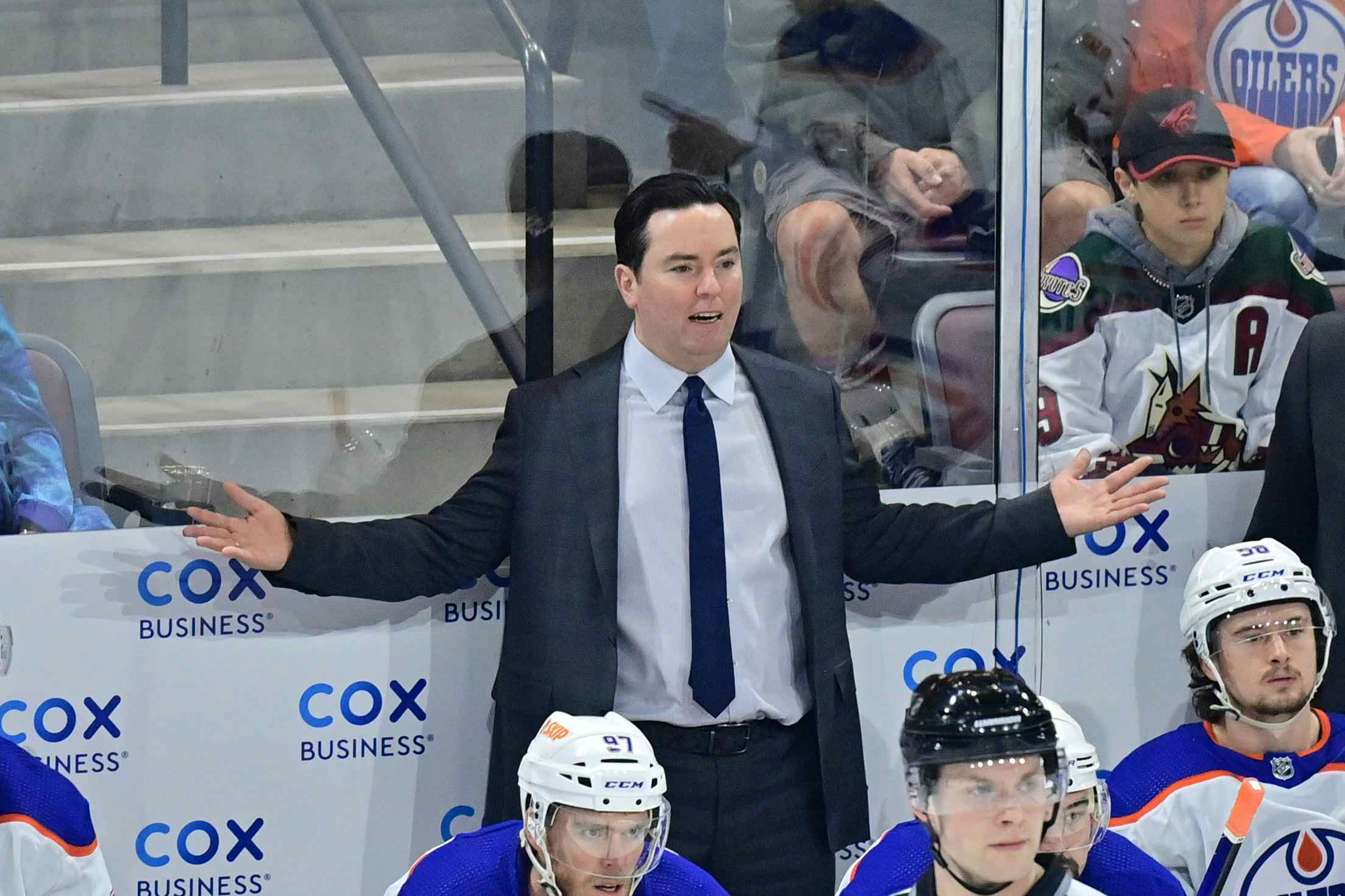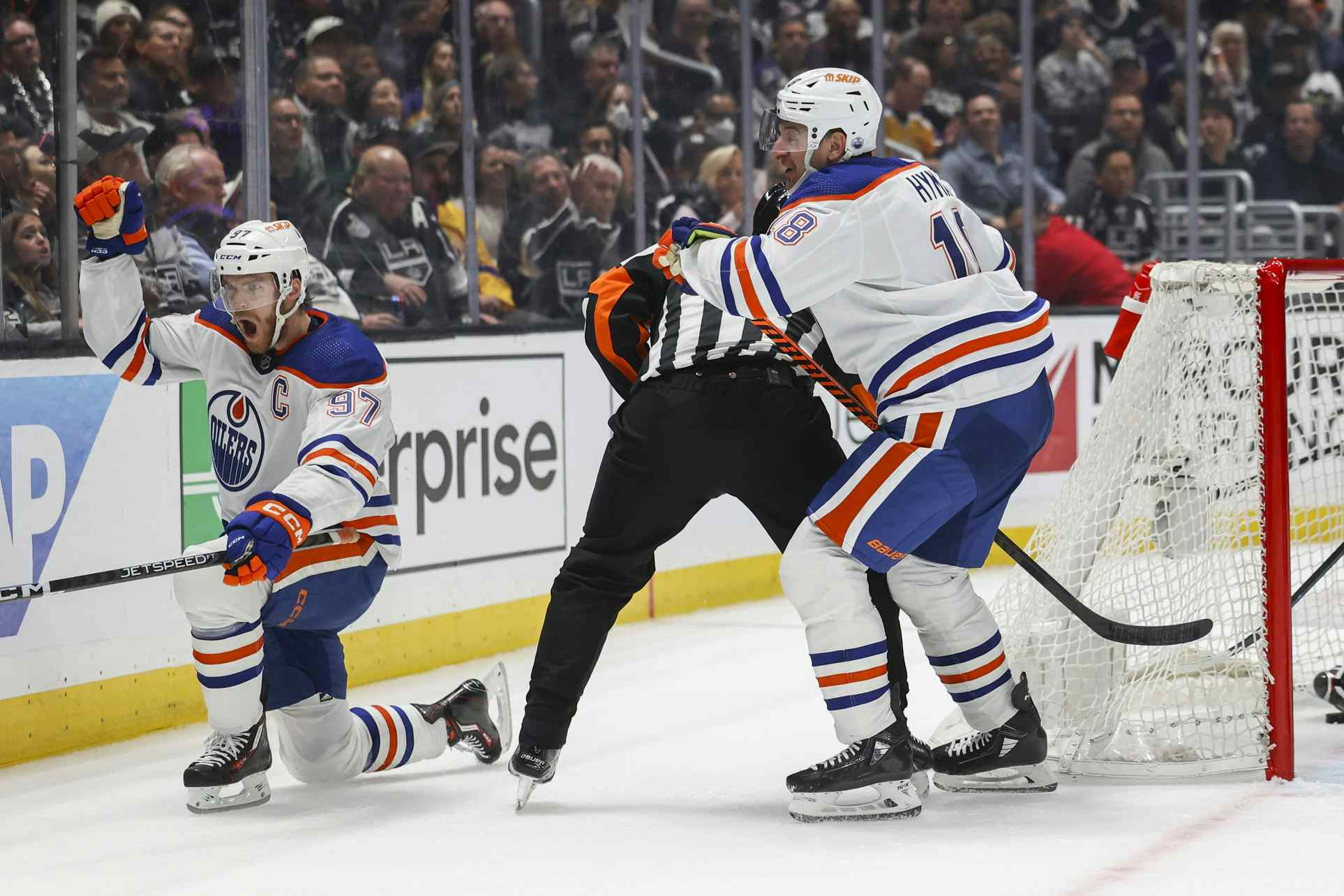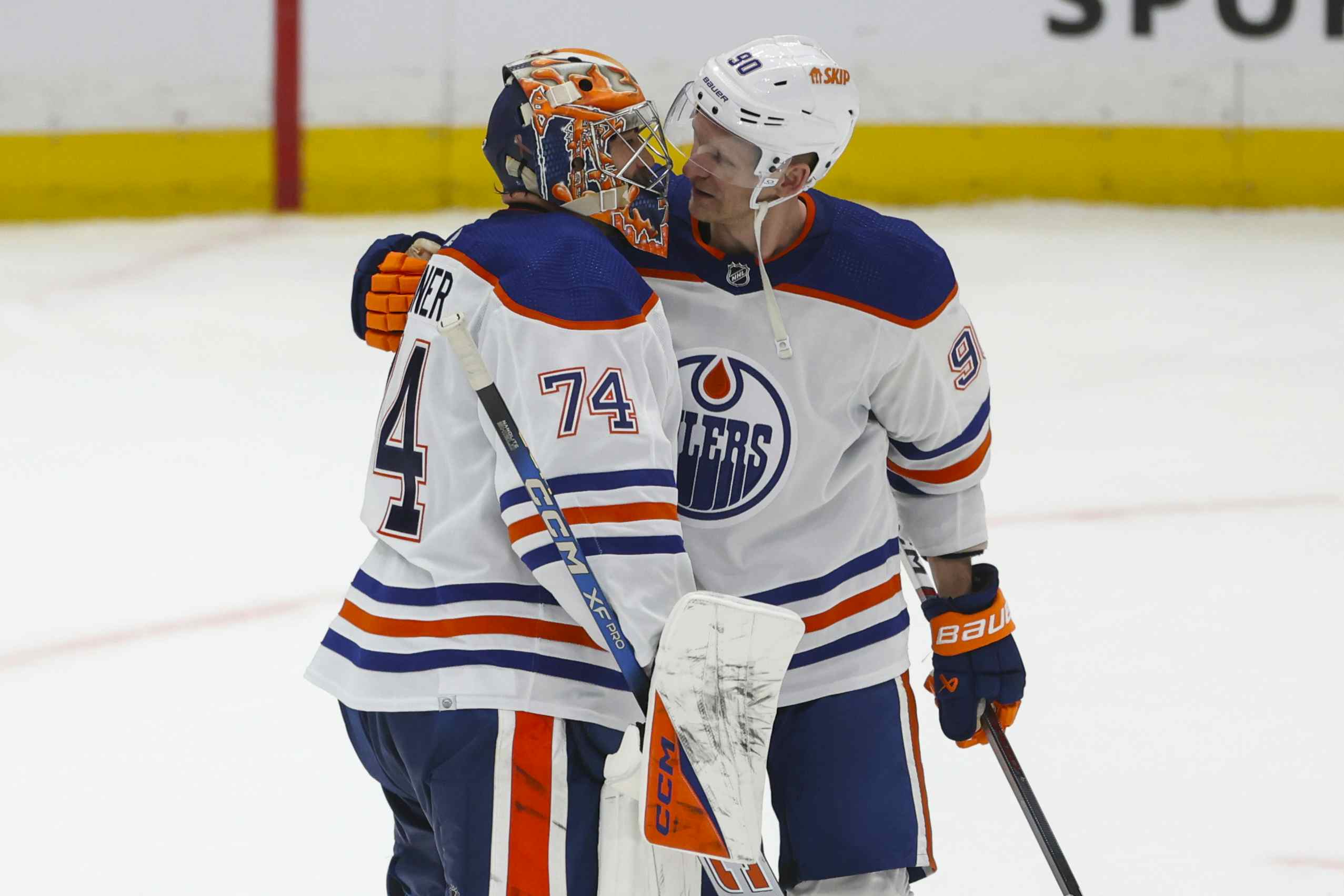Ryan Whitney and Corey Potter

The Edmonton Oilers’ most-used third-pairing this season has had some ups and some downs, but more of the latter than the former. Ryan Whitney’s ineffective play has led to him being a healthy scratch at times, while Corey Potter is often seen as a reserve defenceman who inexplicably finds himself on the regular rotation.
What’s wrong with the pairing?
The two most common explanations are typically these:
- Both players are terrible
- Ryan Whitney has some warts, but is being brought down by Potter
I have typically leaned towards the first explanation, but thought it might be interesting to see what the scoring chance data says.
Whitney without Potter

If Ryan Whitney is in fact a decent player shackled to an AHL’er, we would expect to see on-ice scoring chances improve in games where Potter isn’t dressed. Fortunately for these purposes, Potter has spent significant time out of the lineup, so there is a long stretch of games where Whitney played with other partners. What happened?
The following are the Oilers’ scoring chances for and against at even-strength with Whitney on the ice, first in games where Potter sat, then in games where he played:
- Without Potter: +41/-75 (35.3% of all scoring chances are for the Oilers)
- With Potter: +68/-91 (42.8% of all scoring chances are for the Oilers)
- Total: +109/-166 (39.6% of all scoring chances are for the Oilers)
In both situations, Whitney’s pairing is taken out back of the woodshed by the opposition, but it’s interesting to note that things actually get worse when Potter is out of the lineup.
Potter without Whitney

Corey Potter has not played in a lot of games with Whitney out of the lineup, so there’s not nearly enough data here to be definitive but what information there is caught my eye:
- Without Whitney: +15/-9 (62.5% of all scoring chances are for the Oilers)
- With Whitney: +68/-91 (42.8% of all scoring chances are for the Oilers)
- Total: +83/-100 (45.4% of all scoring chances are for the Oilers)
The “without Whitney” data is so small that it shouldn’t be seen as sustainable – I very much doubt that Potter could sustain those figures, or anything close to them, over a full season played with Mark Fistric or Theo Peckham. But it does seem fair to say that Whitney suffers more from his absence than he from Whitney’s.
Valuation
Ryan Whitney’s an interesting player because the thing he does really well – provide offence – is one of those things that tend to be disproportionally valued. By that, I mean that a guy who gets two points in a 2-0 win and makes no defensive mistakes is objectively helping his team more than a player who scores three points and makes two critical defensive errors that lead to goals against in a 4-3 loss, but more often than not the latter will get more positive attention than the former.
There’s no denying Whitney’s offensive prowess. There was a certain amount of gloating on Twitter among his more fervent supporters when he ran up two points in the Oilers’ 8-2 win over Calgary. Getting less attention was the fact that Devan Dubnyk had to be very sharp in that game because the Oilers were awfully sloppy defensively – and that Whitney was more likely to be on the ice for a chance against than any other player on the team. The offence didn’t come against Vancouver last night, but once again Whitney led the Oilers’ blue line in chances against and made two very bad defensive zone turnovers.
Looking at the data, though, I can’t help but wonder if the Oilers would be better off running Potter and Fistric as their third pairing for a few games – or if not that, pushing Whitney more toward Marc-Andre Bergeron usage, where he plays the role of power play specialist and only gets spotted at even-strength (because Whitney does add value to the power play). At five-on-five, his scoring just doesn’t seem to outweigh his defensive zone work.
Recently around the Nation Network
- Graphic Comments: Trade Line Dead
- Flames Nation: Prophecies of an anonymous Oilers fan
- Canucks Army: Reaction to the Luongo non-trade
- Flames Nation: Final thoughts from the trade deadline
- Leafs Nation: Toronto acquires Ryan O’Byrne
- Nation Profile: Ryan Smyth
- Gregor: Down to the dirty dozen
- Brownlee: All hail Hall
- Willis: Oilers acquire Jerred Smithson from Florida
- Gregor: Will the Oilers make a deal?
- Willis: The Oilers’ tough schedule is a major problem for their playoff hopes
- Follow Jonathan Willis on Twitter!
Recent articles from Jonathan Willis





